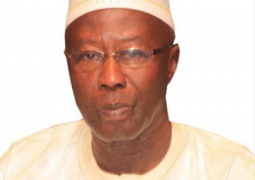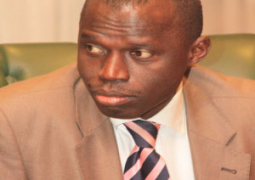Children with special needs deserve special treatment, as promulgated in the national education policy 2004-2015 and inclusive policy framework is paramount if Education For All is to be achieved.
Special needs children require special attention, particularly those school-going-age children with disability in the countryside, who have less or no opportunities to access special needs facilities, for example school or centre, to gain knowledge in order for them to contribute their quota in nation building.
Schoolchildren with disabilities have all rights to a quality free and compulsory basic education and every parent is obliged to ensure their child or ward completes basic education as embedded in section 18 of the 1997 constitution of The Gambia.
Today all over the world, education is regarded as a tool for social, economic and political development, thus integrating schoolchildren with mild to moderate special needs with appropriate supportive service is paramount.
Special needs education and inclusive policy framework covers international legal framework that advocates for the rights of persons with disabilities. This was contained in the national education policy 2004 –2015, aimed at responding to the diversity of Gambian children.
The universal declaration of human rights in the 1948 and in 1971 General Assembly resolutions on the rights of mentally retarded persons emphasises the rights of the people with disabilities, especially schoolchildren.
However, in 1975 a similar declaration was made on the rights of disabled persons and consequently section 30 and 31 of the 1997 constitution of The Gambia talk about the rights of people with disabilities to acquire sound knowledge and also in the Children’s Act 2005.
Some of the analysis revealed that, mythical, social and cultural beliefs of society and social condescending attitudes about persons with disabilities contribute to their exclusion in many social development programmes.
According to a taskforce report released this year, the national prevalent rate of disability is 1.6% with gender differentials of 17.4 and 13.9 per 1000 population for males and females respectively, according to the 1998 national disability survey.
The 2003 national census indicates that the prevalence rate has increased to 2.4 %.
The 2004-2015 national policy emphasises the enrolment of children with severe special educational needs in special schools, which will serve as resource centres with appropriate assessment.
The promotion of supportive approaches that are based on principles of inclusiveness, integration and participation of all children is key.
Disability does not mean inability. With support services provided by the Ministry of Basic and Secondary Education (MoBSE), religious organisation and disabled peoples organisation and government intervention, people with disability would always be taking part in nation building.
Some of the challenges hindering special needs children are inadequate formal special resource centres providing educational services to children with disabilities.
All special needs schools are located in the urban and semi-urban areas of KMC and WCR.
Other challenges include unavailability of critical services including identification and assessment of children with special needs for appropriate placement.
There are also inadequate or no specialised training for teachers handling children with special needs.
The Gambia remains highly committed in developing its human resource base with priority given to free and basic education for all, while the legal basis for education service delivery responds to upholding the rights to quality basic education for everybody as embedded in the 1997 constitution.
If the National Education Policy 2004-2015 is to realise its policy objectives as enshrined in the document, the government has to decentralise the programmes and activities of the special needs children to address the needs of disabled persons. Every child has the right to acquire free quality and compulsory basic education but it is also the duty of the government and its partners to provide an environment conducive for learning to take place.




